To some it might seem strange that the Government Printing Office, the printer of Federal publications for over 150 years, is blogging about eBooks for “Read an eBook” Week and the 25th anniversary of the World Wide Web . However, GPO has been working with digital publications for years and is fully immersed in eBooks.
History of the Ebook and E-Reader Devices
While many know that the paperback book came to us in the 1930s, few know that the concept for electronic books arose at the same time. According to Wikipedia, the idea of the e-reader came to writer and impresario Bob Brown after watching his first “talkie” (movies with sound). In 1930, he wrote an entire book on this invention and titled it “The Readies” [/reed-eeze/] playing off the name of the “talkie.” (Read about Brown in this New York Times article.)

Image: Fantasy exhibit of an electronic simultaneous reading machine. Source: The Architecture of Possibility
Wrote Brown: “The written word hasn’t kept up with the age… The movies have outmaneuvered it. We have the talkies, but as yet no Readies.” He explained why it was needed, saying: “To continue reading at today’s speed, I must have a machine.” He described his ideal future e-reader as: “A simple reading machine which I can carry or move around, attach to any old electric light plug and read hundred-thousand-word novels in 10 minutes if I want to, and I want to.” Furthermore, this machine would “allow readers to adjust the type size and avoid paper cuts.”
 It would take over 40 years for Brown’s prescient vision to become reality. Starting back in 1971, Michael S. Hart launched Project Gutenberg and digitized the U.S. Declaration of Independence, becoming the first eBook in the world. (To put the date into context, 1971 was the year that the first email message was ever sent– between two mainframe computers!) In 1985, the Voyager Company, a pioneer in CD-ROMs, was founded and published “expanded books” on CD-ROM including Michael Crichton’s Jurassic Park, and in 1993, Digital Book, Inc. offered the first 50 digital books on floppy disk.
It would take over 40 years for Brown’s prescient vision to become reality. Starting back in 1971, Michael S. Hart launched Project Gutenberg and digitized the U.S. Declaration of Independence, becoming the first eBook in the world. (To put the date into context, 1971 was the year that the first email message was ever sent– between two mainframe computers!) In 1985, the Voyager Company, a pioneer in CD-ROMs, was founded and published “expanded books” on CD-ROM including Michael Crichton’s Jurassic Park, and in 1993, Digital Book, Inc. offered the first 50 digital books on floppy disk.
Fast forward to 1998, and four important events happened: 1) the first dedicated eBook readers were launched: Rocket Ebook and Softbook; 2) the first ISBN issued to an eBook was obtained; 3) US Libraries began providing free eBooks to the public through their web sites and associated services; and 4) Google was founded by Larry Page and Sergey Brin.
In 2000, the same year Blu-Ray discs were launched, Stephen King offered his novella Riding the Bullet as a digital-only computer-readable file, and two years later, Random House and HarperCollins started to sell digital versions of their publications. In 2004 Sony released its Sony Librie e-reader and then its Sony Reader in 2006.
2007 changed the world of reading forever with Amazon’s launch of the Kindle eBook reader in the U.S. and the launch of the iPhone by Apple. In 2009, Barnes & Noble introduced the Nook, and Sony linked with libraries via the Overdrive digital network to enable library patrons to borrow eBooks from their local library.
2010 was a banner year for eBooks as: 1) Apple released the iPad along with iBooks and its iBookstore on iTunes, selling half a million eBooks in less than a month; 2) Google’s eBookstore launched; and 3) Amazon reported that for the first time, its eBook sales outnumbered its hardcover book sales.
By January 2011, eBook sales at Amazon had outpaced its paperback sales, and by the end of the first quarter of 2012, eBook sales in the United States surpassed all hardcover book sales for the first time, topping over $3 Billion in revenue nationwide. And as of the end of 2013, the Association of American Publishers announced that eBooks now accounted for about 20% of all U.S. book sales.
Types and Formats of Digital Publications
Today, one sees many kinds of digital publications. “Electronic” or digital books can come as printable PDFs, enhanced PDFs with hyperlinks and embedded files, or “true eBook” formats: EPUB or MOBI files. EPUB is the most common and non-proprietary format, used by most Government agencies, commercial publishers, and libraries, and can be used on a variety of devices and software from different vendors. MOBI or AZW is used by Amazon for its Kindle readers and software.
EPUB and MOBI are “true eBook” formats because they offer resizable and reflowable text, automatically adjusting to the font and screen size and orientation (portrait or landscape) set on the e-reading device or software being used. (For more information, read our blog post “Government eBooks Made Easy– and Sometimes Free.”)
Readers either download digital publications onto their dedicated eReader like a Kindle or Nook, or they download it to their desktop or laptop computer, smart phone or tablet computer to read. If it is not a dedicated eReader device, the user must first have software on his device to allow him to read the format of eBooks he has downloaded. To learn more about eBook formats and find FREE software to read EPUB eBooks on your computer or mobile device, read our detailed eBook Readers & Formats page on the U.S. Government Bookstore.
Magazines are also available digitally, but their typically image-heavy content makes them more suited for reading on color tablets and desktop computers than smartphones or black-and-white eReaders with smaller screen sizes or no color. Zinio.com, touted as “The World’s Largest Newsstand”, is one of the sites where readers can search for and subscribe to digital magazines or buy individual issues.
GPO Digital Publication Services: “Helping Federal Agencies keep America informed”
In addition to helping Federal agencies design, print, promote and distribute physical publications, GPO has, for a number of years now, been helping our Federal agency partners design, convert, disseminate, and promote digital publications as well. From eBooks to audiobooks, PDFs to e-periodicals, MP3s to mobile sites, GPO is working with Federal agencies to not only assist them in producing the best digital publications in the right formats, but to also augment their own outreach efforts by helping spread the word to gain the largest audience possible for their publications.
Today we offer five areas of digital (and print) publication services to U.S. Federal Government agencies in the Executive, Legislative or Judicial branches:
-

Image: Choosing the right format and content for your publication is made easier with GPO’s publication consulting services.
Publication Consultation services: Do you need advice on what formats are best for your content? Need to know how to best structure and build your digital publication to ensure its broadest use and dissemination? We offer free consulting services to Federal agencies to help you get these projects on the right track.
- Design services: Does your agency need assistance in developing and producing digital or print publications, from photography, videography, copy, layouts and more? Our fee-based Creative Services can be hired to do this for you, with only an inter-agency memo required to get started.
- eBook Conversion services: Are you a Federal agency that already has a print book or magazine you want to turn into a digital publication? Or do have one digital format like a plain PDF that you need to convert to another format so more customers can use it? We offer fee-based conversion services to turn that publication into digital formats ready for commercial distribution.
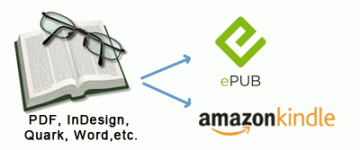
Image: GPO can help Federal Agencies convert their existing publications into alternative formats. See our eBooks & Digital Services page for more information.
- Dissemination services: After all this work creating the perfect digital books and magazines, you need to make sure it reaches the widest intended audience possible. GPO’s Sales Program provides a network of the top print and eBook distribution services and sites in the world, including Google Play, Apple iTunes, Barnes & Noble, MyiLibrary, Overdrive, and Zinio (for e-magazines and journals), to name a few.Whether an agency has print books or posters, maps or MP3s, eBooks or audio books, GPO can help agencies disseminate their publications through the top channels worldwide. Learn more in the eBook Channels for Federal Publications section below or visit our eBooks & Digital Services page. (Note that libraries can find links to published U.S. Government eBooks in GPO’s Federal Depository Library Program’s special eBooks at GPO page.)
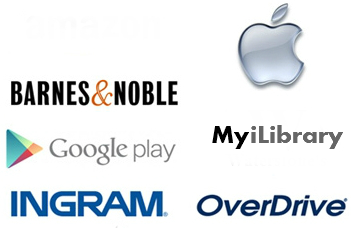
Image: GPO’s Publication & Information Sales team helps Federal Agencies attain the broadest dissemination possible through our many worldwide eBook distribution partnerships.
- Promotional services: Once your digital publication shows up on all these channels, how do you drive customers to find it? For items in GPO’s Sales Program, we market our Federal agency partners’ digital publications through a variety of methods that could include: posts on this widely-read Government Book Talk blog; posts on other social media such as Pinterest, Twitter, Facebook and more; targeted outreach and press releases; flyers, catalogs and other direct mail; live events and webinars; search marketing; alerts to Federal Depository Libraries about the title; and our free New Titles by Topic email subscription service, to name just a few of our many promotional tools.
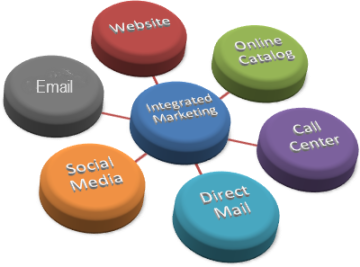
Image: GPO’s Publication & Information Sales team helps get the word about our Federal Agency Partners’ publications through integrated marketing and outreach to the public, book dealers, industry and consumer organizations and more.
GPO Sales Program Manages eBook Channels for Federal Government
Thus, GPO has established the most robust dissemination program available for Federal agencies to “get their eBooks out where users are looking for them,” by signing partnerships with the top eBook and eMagazine distribution services in the world and expanding our own online bookstore to offer eBooks.
In order to take advantage of the sophisticated technology and distribution partnerships GPO has put in place for the Federal Government, Federal agencies can choose one of two models for GPO to disseminate their digital publications:
a) PAID CONTENT: Under this model, instead of having the Federal agency pay GPO for dissemination and promotion, the costs for GPO’s dissemination and promotional services (including elaborate metadata and search optimization) are recovered by selling the eBook to the public at a reasonable price.
b) FREE CONTENT: However, if the Federal agency determines that the digital publication needs to be free to the public through all the commercial channels, the agency may pay GPO a modest fee for dissemination and promotional services, and the eBook will be offered for free to the public.

Image: Extract from GPO’s U.S. Government Bookstore home page at http://bookstore.gpo.gov, which has both physical products (print books, CD-ROMs and DVDs, posters, flashcards, etc.) and DRM-free digital publications (eBooks, audio books, PDFs, etc.) available.
eBook Channels for Federal Publications
- GPO’s eBook Channels: In addition to cataloging digital publications in GPO’s Catalog of U.S. Government Publications, storing some on FDsys, and sending copies to the Federal Depository Libraries, we also distribute eBooks, both free and paid, on our U.S. Government Online Bookstore at http://bookstore.gpo.gov/ebooks.
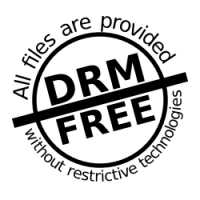
All ebooks available on GPO’s U.S. Government Bookstore are DRM-free, with no restrictive Digital Rights Management.
Because we have optimized the navigation and search on our site specifically to make it easy to find Federal eBooks by Agency, Topic and/or Format, many titles are seeing more downloads here than out on commercial sites like Google or iTunes or even on agencies’ own websites.
Also contributing to the surging popularity with the public of obtaining eBooks from the U.S. Government Bookstore is the fact that unlike eBooks purchased from some of the proprietary eBook distributors, digital publications on the U.S. Government Online Bookstore are DRM-free (no Digital Rights Management), meaning they are not restricted to a single device or manufacturer and can be downloaded multiple times.
- Commercial eBook Channels: Apple iTunes iBookstore, Google Play eBookstore, Barnes & Noble Nook Book Store, Powell’s, eBookPie, Diesel eBookStore, (United States), and more.
- U.S. Public Libraries: Overdrive’s Library Digital Distribution provides eBooks to public library patrons nationwide.
- Academic eBook Channels: EBSCO, MYiLibrary, AcademicPub and others.
- Digital Magazine Channels: Zinio.com worldwide distribution of digital magazines and journals.
Featured eBooks Available Now on the U.S. Government Bookstore
FREE EBOOKS: Some of the best FREE ebooks available now from the U.S. Government Bookstore include:
- FAA NextGen Implementation Plan (ePub eBook) lays out the Federal Aviation Administration’s roadmap for the future of air travel in America.
- Ponzimonium: How Scam Artists Are Ripping Off America (ePub eBook) is a don’t-miss eBook about infamous investment fraud con artists, their scams, how they got caught, and how consumers can avoid getting conned themselves.
- The Warren Commission Report: The Official Report on the Assassination of President John F. Kennedy (PDF) Still controversial 50 years later, this is the full 889-page report by the President’s Commission on the Assassination of President Kennedy.
OTHER POPULAR TITLES: Here are some of the newer and more popular DRM-free Federal eBooks available from the U.S. Government Bookstore:
- Free Trade Agreements: 20 Ways to Grow Your Business (ePub eBook) The book provides detailed information on best prospects, insights on the economic and political situation, tips on business culture, free and low-cost assistance for entering each country market where the U.S. government has negotiated preferential access for U.S. companies.
- The U.S. Army and the Lewis and Clark Expedition (ePub eBook) is an engaging account of the U.S. Army’s role in the Lewis and Clark Expedition, officially designated the “Corps of Volunteers for North Western Discovery.”
- Sources of Weapon Systems Innovation in the Department of Defense: The Role of In-House Research and Development, 1945-2000 (ePub eBook) explores the historical evolution of this process during the Cold War to the end of the twentieth century, focusing specifically on the content, scope, organizational structure, and management of in-house research and development (R&D) in the Army, the Navy, and the Air Force. It is not merely a comprehensive history of U.S. military R&D, but is rather a broad historical overview of changing institutional patterns of technological innovation within the Defense Department’s major weapons laboratories.
- Deep Water: The Gulf Oil Disaster and the Future of Offshore Drilling, Report to the President, January 2011 (ePub eBook) is the official report of Presidential Commission assigned to investigate the Deepwater Horizon oil spill disaster, analyze its causes and effects, and recommend the actions necessary to minimize such risks in the future. The Commission’s report offers the American public and policymakers alike the fullest account available of what happened in the Gulf and why, and proposes actions—changes in company behavior, reform of government oversight, and investments in research and technology—required as industry moves forward to meet the nation’s energy needs.
- Black Americans in Congress, 1870-2007 (ePub eBook) is a comprehensive history of the more than 120 African Americans who have served in the United States Congress through 2007. Written for a general audience, this eBook contains a profile of each African-American Member, including notables such as Hiram Revels, Joseph Rainey, Oscar De Priest, Adam Clayton Powell, Shirley Chisholm, Gus Hawkins, and Barbara Jordan.
- HAP: Henry H. Arnold, Military Aviator (ePub eBook) Aviation and military history buffs will enjoy reading about Colonel Henry Harley Arnold or “HAP” Arnold, one of the first two active U.S. Army pilots. Also available in Print, this eBook is available currently through third party eBooksellers.
How can I get Federal Government eBooks and digital magazines?
- Shop Online Anytime: You can buy eBooks as well as print publications (with FREE Standard Shipping worldwide) from GPO’s U.S. Government Online Bookstore website at http://bookstore.gpo.gov:
- Shop Commercial eBook Channels: Search these sites for the ISBN or exact title of the Federal eBook. Also, GPO’s Online Bookstore lists third party eBooksellers where the title can be found for eBooks in our eBook Sales program.
- Visit the Federal Agency’s website: Often, PDFs of the publication are posted on Federal Agencies’ websites.
- Visit a Federal Depository Library: Search for U.S. Government publications in a nearby Federal depository library. Librarians: You can find the records for most titles in the Catalog of U.S. Government Publications (CGP), or search for published U.S. Government eBooks in GPO’s Federal Depository Library Program’s special eBooks at GPO page.
- Visit a Public Library: Ask your local public librarian about Federal eBooks that may be available for library patrons to check out through the library’s Overdrive subscription.
About the author: Government Book Talk Editor Michele Bartram is Promotions Manager for GPO’s Publication and Information Sales Division in Washington, DC, and is responsible for online and offline marketing of the US Government Online Bookstore (http://bookstore.gpo.gov) and promoting Federal government content to the public.
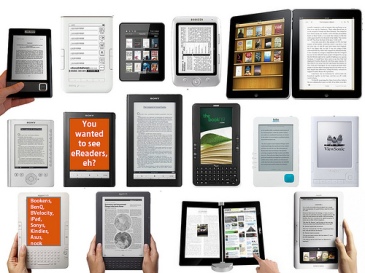
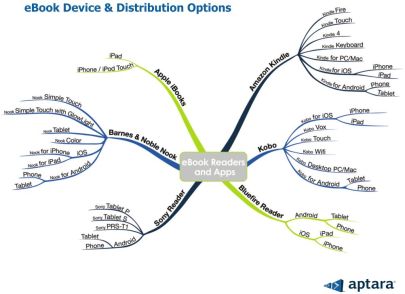



Hello, Amazing information shared on your blog about the history of E-books. Keep it up and Thank you very much.
LikeLike
Wow Apple released the ipad along with iBooks and t5hsi iBook store on itunes ,selling a half and million books in less then one month. Great it is very goof news for us . Thanks for sharing this wonderful information. Keep posting.
LikeLike